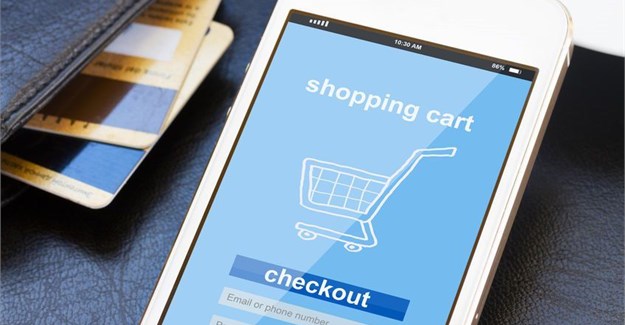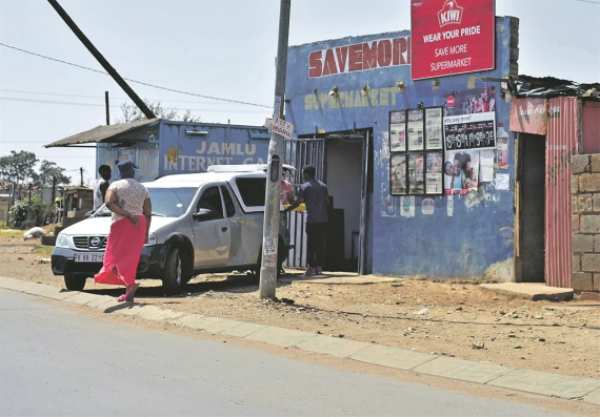As of 22 May 2020 South Africa is on day 56 of lockdown. The extended lockdown has negatively impacted numerous businesses, employees, overall consumer spending and the economy in general.
To alleviate the pressure on the South African economy, government has introduced a ‘phased approach’ to lifting the lockdown which imposes less stringent measures per phase. However, this phased approach poses larger risks to already increasing Covid-19 numbers; 15,515 confirmed cases, 7,006 recoveries and 264 deaths in South Africa.
Despite the phased approach at lifting the lockdown, South Africa might never be able to ‘go back to normal’, especially in terms of retail which currently contributes 15% of South Africa’s GDP.
This presents an opportunity for retailers and consumers to adopt a ‘new normal’ – online shopping. In South Africa however there are numerous aspects that affect whether consumers will be able to accept the ‘new normal’ and determine the strategies that online retailers need to implement to accommodate their consumers. These include:
1. Recession
As expected, global lockdowns have had a negative impact on economies. According to Larry Elliot, economics editor for The Guardian, “the world should prepare for a coronavirus global recession”. South Africa is not exempt from this recession, and it should also be noted that Fitch Ratings downgraded the country to ‘BB’ status. This means that outside investors are not keen to invest in South Africa, and this could lead to further job losses.
Despite efforts from the South African government to introduce a ‘phased approach’ to re-establish the economy by lifting the stringent measures of lockdown, many businesses have closed down as they cannot reap lost profits.
2. Data access
Data access has been an ongoing issue. Ever since the SONA address in 2006, successive presidents of South Africa have suggested numerous strategies. Fourteen years later, consumers have only recently begun to experience reduced mobile data costs, following a directive from the President and the Competition Commission to mobile operators to reduce their data costs.
What’s more, obtaining a new spectrum licence to increase and improve internet connectivity was proposed in 2018, yet the Independent Communications Authority of South Africa (ICASA) is yet to conclude this process. This means that consumers in rural or remote areas still struggle to connect to the internet.
3. Digital literacy
According to a white paper written by Sefton-Green, Marsh, Erstad and Flewitt, digital literacy can be defined as “a social practice that involves reading, writing and multimodal meaning-making through the use of a range of digital technologies”.
The assumption on which this definition is based is that you would need first to be literate in order to have digital literacy. But South Africa has around three million people who remain illiterate. That can be attributed to poor schooling systems, an inability to afford to attend school, and dropping out of school. Most of these individuals are from no-income to lower-income earning segments. Thus they are further disadvantaged in not being able to use the internet to purchase online.
With these factors in mind, what can retailers and marketers do to remain #MarketingFit and to encourage all South Africans to shop online during a national lockdown?
To address the issue of a recession:
- Focus on value-offering packages of essential products that consumers need to buy even during a recession.
- Offer sales promotions, discounts, or value bundles for non-essential products to encourage consumers to buy them and so maintain their standard of living.
- Offer mobile data vouchers to customers who buy certain products or whose purchase amounts to a specific total.
- A large number of consumers are sceptical about providing their credit card details online, and most lower-income earners still use cash. So online retailers could offer a cash-on-delivery option.
To address the data access issue:
- Host competitions on TV and radio with mobile data bundle voucher giveaways or vouchers from the retailer. Airtime can also be given away when purchases are made.
- Optimise websites and mobile shopping applications with ‘light’ versions that require minimal data access by reducing the amount of rich content that requires more data.
- Partner with mobile service operators to offer free access in rural areas for a specific period of time. USSD technology can also be used to give away free data with spend on groceries.
To address the digital literacy issue:
• Constantly communicate with consumers via platforms that are available at home. In a lockdown, consumers might not be exposed to outdoor advertising, or be able to buy newspapers and magazines. Retailers can use TV and radio advertising to target lower-income earners, and social media for those who have access to and use the internet regularly.
- Use technologies presented by the 4IR, including artificial intelligence, to make the online purchasing process easier – for example, using technologies such as Siri or interactive chatbots on retailer websites to guide the purchasing process.
- Using voice-enabled settings on online stores for those who struggle to read content, so that consumers can hear and speak their prompts instead of reading and typing.
- Use virtual reality to create a 3D image of the store and its aisles to mimic the physical outlet, and so make the online shopping experience easier.
At the moment, consumers who have been sceptical about buying online might feel as if they have no other option. But there are numerous strategies that retailers and marketers can implement to encourage consumers to purchase online. Over time, this may alter consumer behavior, as consumers who were sceptical about buying online would experience the benefits associated with online shopping.
Retailers could, therefore, use the national lockdown to their advantage by trialing these online strategies, which would also promote an overall increase in online retailing in South Africa.
Article Source: https://www.bizcommunity.com/Article/196/394/204253.html





